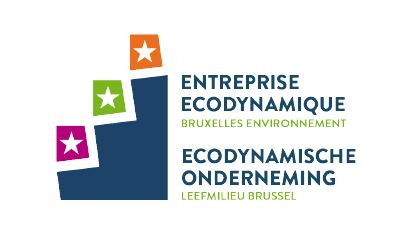Who is Chloé Deligne?
- A qualified researcher at the FRS-FNRS, a lecturer at the ULB, coordinator of the interdisciplinary Laboratory for Urban Studies.
- Co-author of the research project “Un nouvel hinterland ? Histoire, pratiques et espaces de l’agriculture urbaine à Bruxelles “ (A new hinterland? History, practices and spaces for urban agriculture in Brussels) and the book “Terres des Villes. Enquêtes potagères de Bruxelles aux premières saisons du 21e siècle” (Land of the Cities. About vegetable gardens in Brussels during the first seasons of the 21st century).
- 46 years old, lives and works in Brussels.
Keyword
Chloé Deligne’s keyword? Hybridisation.
Brussels is all about a fusion of different languages, cultures and backgrounds. This is coupled with the freedom of association, that is enshrined in our Constitution, as well as a long history of struggles to defend the city. Our heritage and our current diversity add a certain je ne sais quoi to the city. Brussels is a very complex city, which is exactly what makes it so interesting.
A job at the heart of innovation
Chloé doesn’t like to talk about innovation, she prefers the word ‘transformation’ instead.
Innovation is widely associated with management speak. It relies on novelty as a guarantee for a solution, preventing us from seeing the existing assets and riches, of what was developed throughout our history. I prefer to talk about transformation, because you never start with a blank page. As a historian, I try to provide instruments to transform the world in which we live. Knowing the places where you live inside and out provides you with the resources to make them exist, to transform them, and to intervene on the local level, with specific solutions. Nowadays people are developing urban farming concepts in Brussels without even being aware of the history of the Brussels vegetable gardens. People have been successfully growing vegetables in certain places for over 100 years. These vegetables were grown for subsistence, as a way of survival, whereas today’s urban farming proposes a business model with new techniques to grow products with high added value. They are developed in line with a market economy rather than to feed a population. Since the industrial revolution, innovation is developed in a market economy. This is part of the historical problem of science and technology.
Project in the spotlight
The hinterland project studied the existing food resources on the Brussels’ territory. The researchers discovered countless historical places, that are not well documented and that are on the verge of disappearing, while people are trying to reintroduce agriculture in the city.
Given this completely contradictory logic, our study aims to contribute to a better understanding of how people are cultivating the land in Brussels. It does not offer a specific solution but it may widen people’s perspective on the world and on how we can transform it, with learnings from the past and present, and potentially also promote other ways of working toward a better future.
Brussels, City of Innovators
Chloé believes inventiveness is typical of Brussels rather than innovation.
Brussels is a very rich and interesting city, with many different dimensions. There is a lot of diversity and inventiveness everywhere you look. This vitality is also linked to the astonishing richness of civil society and the network of associations in Brussels.
What she likes about her job
I’m really interested in understanding the places where I live, and the multiple aspects of these places. I’m not a theorist, I love to observe what’s around me, to roam, to be surprised by the unexpected, to engage with elements that may seem like details but are in fact part of much bigger thought processes. I use these observations to study ecologies, to understand how people and objects interact to create the world that we live in and how they take their place in history.
Her career
Chloé graduated from the Université libre de Bruxelles (ULB) with a degree in history, going on to study environmental management and human geography. Her choice was inspired by the way that she looks at the world around her, which also explains her career as a researcher.
Tips for Brussels innovators
2) Don’t be afraid of hybridisation: in nature, hybrid species are new and transformed. This also applies to our human society. We need to branch out.

